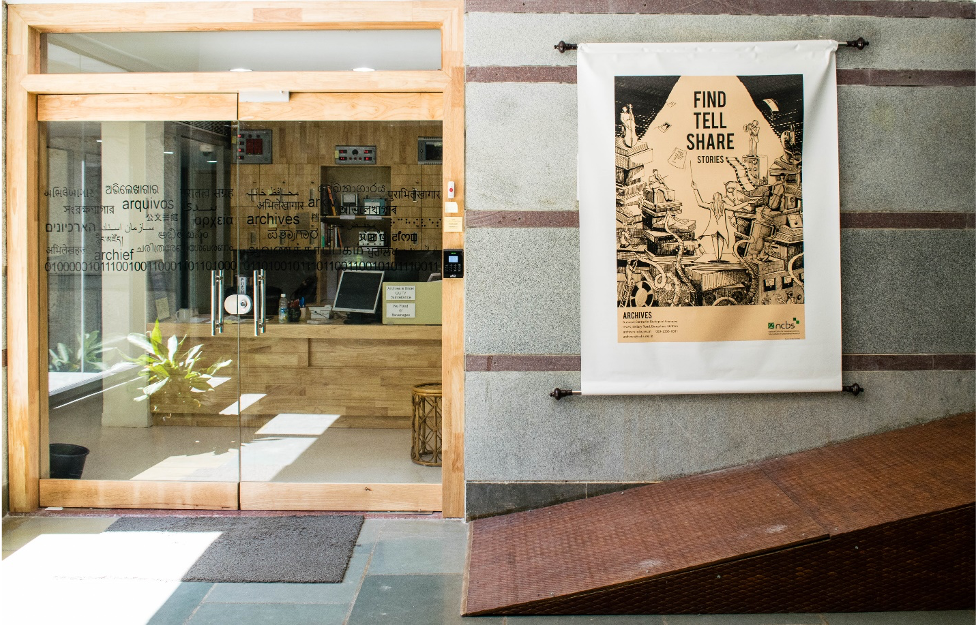First Chair ready to foster History and Culture of Science at NCBS
Dr MD Madhusudan is the first recipient of the Obaid Siddiqi Chair in the History and Culture of Science at the Archives at NCBS, a public centre for the history of contemporary biology in India. Dr Madhusudan is an independent researcher and co-founder of the Nature Conservation Foundation (NCF).
The Chair will lead a much-needed effort to bridge the gap between the sciences, social sciences and humanities, and will foster a diverse and inclusive community of academics across disciplines. This cross-disciplinary approach using the Archives as a foundational ‘lab’, aims to build teaching and research capabilities of academics at the intersection of the sciences and humanities.
NCBS received a large number of high calibre applications for this Chair from across the world. Dr Madhusudan was the Review Committee’s unanimous choice. Prof Satyajit Mayor, Director of NCBS, says, “The diversity and quality of the applicants we received made the choice of Dr MD Madhusudan a difficult one. While the decision was unanimous, I feel that the high quality and diverse nature of applicants we received augurs well for the future of the Obaid Siddiqi Chair, one of the first Chairs of its kind in the country. Our decision in this instance was based on Dr Madhusudan’s plans for bringing in programmes in both History and Culture, together with his interests as a scientist committed to multidisciplinary narratives. COVID restrictions notwithstanding, we are really keen to have Dr Madhusudan engage with our campus, and are looking forward to his starting up as the inaugural Chair as early as the beginning of August, 2021.”
In addition to the expectations of the Chair in public engagement and local academic involvement, Dr Madhusudan plans to initiate two projects along with his collaborators, and embed some of these in the Archives at NCBS.
The first project is the Making of Indian Conservation, an archive of oral history interviews and other material that chronicle the engagements of diverse constituents with conservation across India’s living lands and waters over the last 50 years, and produce a scholarly treatise in this unexplored area.
The second is the India Open Land Cover Project, an open geospatial archive of natural and anthropogenic land cover types over time (for India) based on public earth-observation data and open code.
“These projects are driven by an attempt to gather and share stories about India's collective conservation journey over the last few decades. Not just stories of landmark legislations and grand actions, but also the untold human stories of lives that have intersected with conservation. And the stories that our lands and waters themselves have to tell us, as we have shaped and reshaped them over the years,” says Dr Madhusudan.
The Chair and associated activities are made possible through generous support from TNQ Technologies, a global leader in scientific, technical and medical publishing services and technologies. Mariam Ram, Managing Director at TNQ Technologies, says, "Congratulations on the selection of an impressive Review Committee and the choice of Dr MD Madhusudan as the first Obaid Siddiqi Chair in the History and Culture of Science. I am sure that with this important position filled, the Archives project will go forward as envisaged".










0 Comments